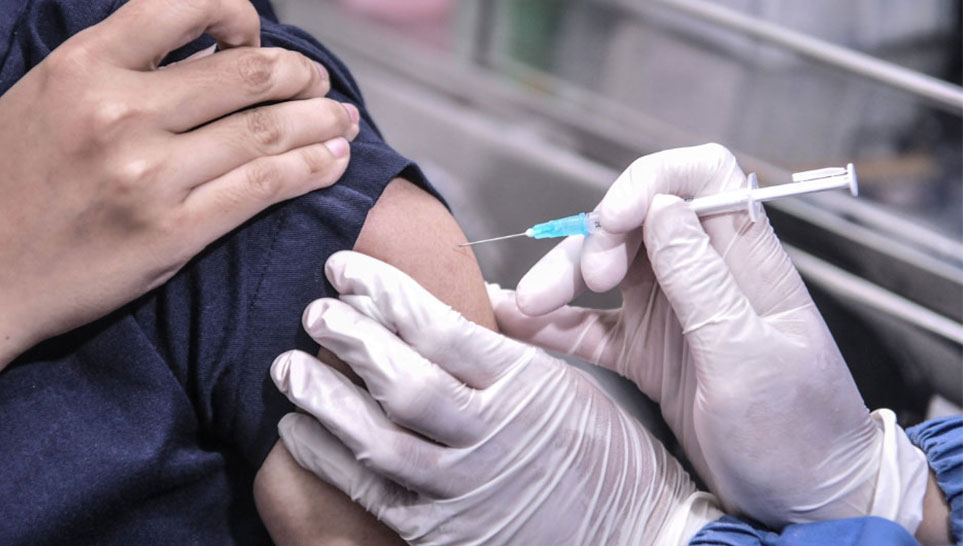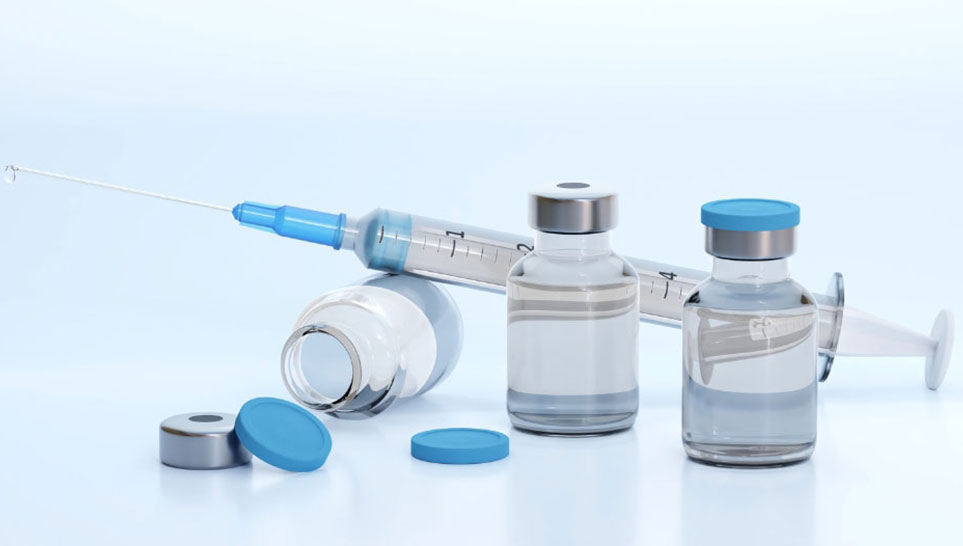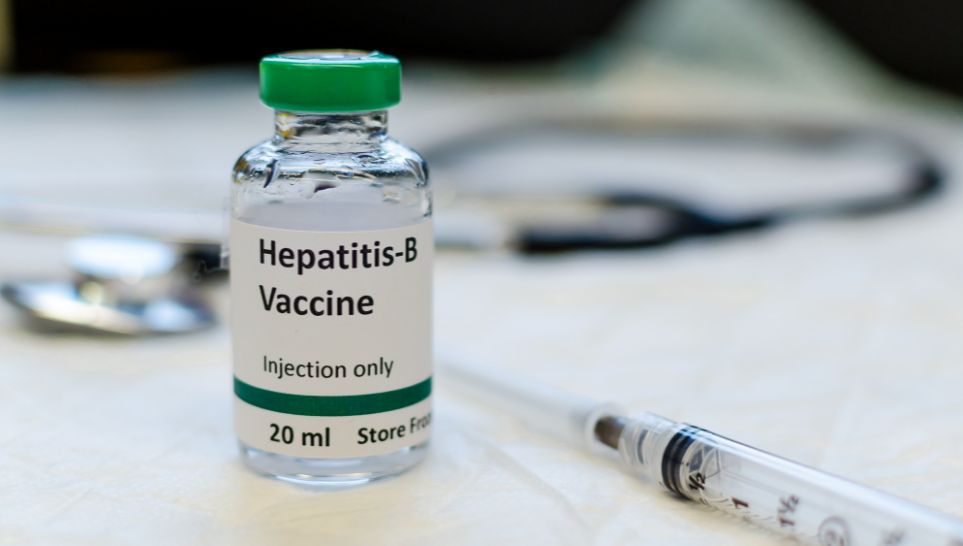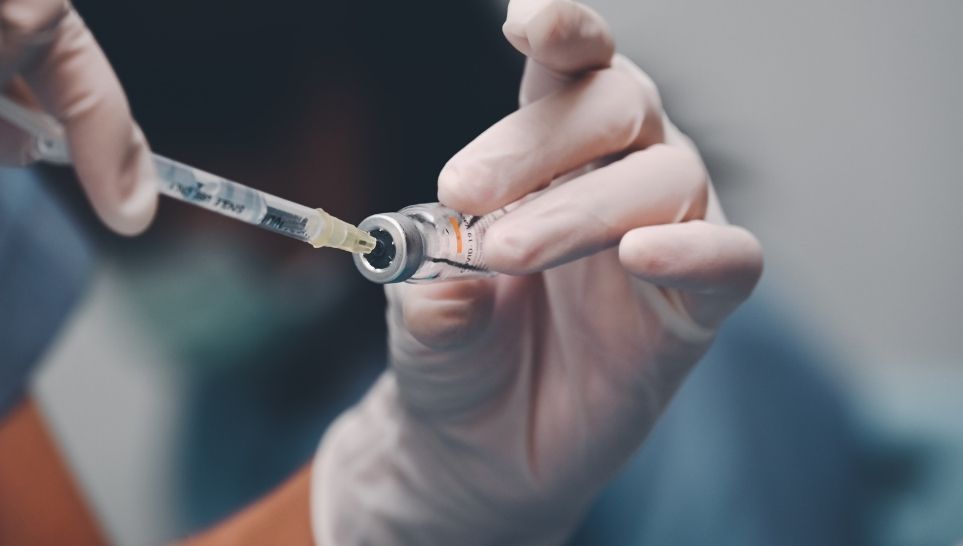Vaccine injuries are frightening, real occurrences that everyone should learn about before saying yes to their next booster. Numerous adverse events can cause severe, long-term injuries that dampen your quality of life and create medical bills and potential legal fees. Because of these risks, the National Vaccine Injury Compensation Program awards compensation to eligible individuals who suffer common vaccine injuries.
Understanding how vaccine-related injuries occur, what symptoms you may experience, how to avoid injury, and what to do if an adverse event happens can help protect your health, rights, and finances. At Sadaka Law, we are committed to representing clients who were injured during the vaccination process. We can help you seek maximum compensation from the National Vaccine Injury Compensation Program so you can recover from your adverse effects.
What Is a Vaccine Injury?
A vaccine injury is any severe adverse reaction that occurs from a vaccine. Vaccines routinely cause common reactions like swelling, redness, and itchiness around the injection site that do not create cause for concern.
Most vaccines contain antigens that stimulate your immune system, teaching it how to fight off infectious diseases, viruses, and bacteria. Because of this component, you may often feel flu-like symptoms after a vaccine, like nausea, fever, headache, and other symptoms. However, an abnormal reaction includes more severe effects like difficulty breathing, muscle weakness, excessive bleeding, frozen shoulder, and even death.
The World Health Organization, the National Vaccine Injury Compensation Program, vaccine manufacturers, the Centers for Disease Control and Prevention, the United States Department of Health and Human Services, and other public health resources and immunization programs regulate approved vaccination programs based on thorough clinical trials to prevent federal claims under the VI program, while some of these organizations compensate individuals with eligible injuries. To receive compensation, you typically must show medical records proving, with a reasonable basis and good faith, a causal connection between your injury and the covered vaccine.
At Sadaka Law, we aim to help you prove that the vaccine caused your injury so you can seek the maximum settlement amount for your suffering.
What Are the Types of Vaccine Injuries?

While vaccines are meant to protect you from harmful diseases, adverse reactions can still occur. All forms of medical intervention involve risks. The most common types of vaccine injuries include the following:
Shoulder Injury Related to Vaccine Administration (SIRVA)
A shoulder injury related to vaccine administration (SIRVA) typically occurs when the administrator injects the drug in the wrong area of the shoulder, penetrating the deltoid muscle and bursa. While all vaccines typically cause mild shoulder pain, severe administration-caused shoulder injuries lead to progressive pain that worsens in the days following the vaccine. Injured vaccine recipients often experience severe pain and poor range of motion.
Brachial Neuritis
Brachial neuritis is a form of peripheral neuropathy nerve damage from an abnormal immune response that causes muscle pain and weakness, limited range of motion, numbness, and loss of reflexes and sensations like temperature perception. This reaction most commonly occurs after the tetanus toxoid vaccine, though numerous other vaccines can cause it.
Guillain-Barré Syndrome
Guillain-Barre Syndrome is a rare autoimmune disorder that causes the immune system to attack nerve cells. Numerous vaccinations, like the flu shot, can cause Guillain-Barre Syndrome and can take up to 40 days for symptoms to appear. Symptoms of Guillain-Barre Syndrome typically include muscle weakness, numbness, tingling, difficulty controlling bodily functions, and more.
Acute Disseminated Encephalomyelitis (ADEM)
ADEM is a rare neurological disorder that causes brain and spinal cord inflammation and myelin damage. If your immune response overreacts to the vaccine, you could become one of the rare cases of ADEM, with symptoms including comas, paralysis, fever, headache, nausea and vomiting, confusion, and more.
Transverse Myelitis
Transverse myelitis is an inflammatory disease that attacks the spine causing severe shooting pains, weakness, strange temperature sensations, and incontinence. Many vaccinations, including the flu shot, can trigger adverse events from the autoimmune reaction.
Multiple Sclerosis (MS)

Multiple sclerosis is a neurological disease that causes weakness and numbness in one side of the body, tremors, loss of coordination, painful eye movements, reduced functions, blurry vision, fatigue, slurred speech, and more. MS is an autoimmune disease, meaning that the vaccination causes your immune response to attack your body’s internal functions.
Optic Neuritis
Optic neuritis is an inflammatory condition of the optic nerve that causes eye pain, vision loss, peripheral vision loss, impaired color perception, and flashing lights. The condition can occur after an adverse immune reaction to vaccinations.
Rheumatoid Arthritis
Rheumatoid arthritis is another autoimmune disease where your immune system’s reaction attacks the tissues around your joints, causing pain and swelling. Other symptoms may include a poor appetite, fever, fatigue, and stiff joints.
Anaphylaxis
Allergic reactions can occur when you’re allergic to certain ingredients in the vaccine. The most severe symptom of an allergic reaction is anaphylaxis which causes your body to go into shock, triggering high-risk symptoms like a rash, throat swelling, an increased heartbeat, the inability to breathe, changes in blood pressure, and more.
Chronic Inflammatory Demyelinating Polyneuropathy (CIDP)
CIPD is a neurological injury that causes numbness, pain, tingling, and weakness. CIPD occurs when the body attacks the peripheral nervous system, severing the controls between your brain and limbs.
Idiopathic Thrombocytopenic Purpura (ITP)
ITP is an immune bleeding disorder that prevents your blood from clotting the way it should, causing excess bruising and bleeding. The most severe effect of ITP is brain bleeding.
Autoimmune Disorders
Autoimmune disorders include many of the vaccination injuries discussed thus far, like Guillain-Barre Syndrome. An autoimmune disorder occurs when your immune response overreacts to the vaccination, causing your body to attack vital nerves, organs, or muscles.
Causes of Vaccine Injuries

A vaccine injury can occur from improper administration or from the drug itself. For example, if the administrator injects the vaccine in the wrong area or fails to ask the patient certain questions beforehand, the individual may get hurt. Pregnant women cannot receive various vaccines, so health care professionals must ensure patients aren’t pregnant before administering these drugs.
Numerous vaccinations can cause injuries. The following vaccines may cause the above reactions:
- Hepatitis B vaccine
- DPT vaccine (group of vaccines protecting against diphtheria, pertussis, and tetanus)
- Flu shot
- Pneumococcal conjugate vaccines
- Human papillomavirus (HPV) vaccines
It would be impossible to list all of the vaccines that can cause injuries within the article. View the National Academies Press Vaccine Injury Table for the full list of vaccines that may cause injuries. The table uses extensive data based on years of vaccination injury report information, studies, and academic investigations.
Can the Influenza Vaccine Cause Injuries?
Yes, the influenza vaccination has a high risk of causing injuries because many individuals receive it on an annual basis. If you’re concerned about this particular vaccine, read our tips on preventing injuries below.
What Are the Symptoms of Vaccine Injuries?
Vaccine injury symptoms depend on the injury you suffer. Allergic reactions will cause much different symptoms than shoulder injuries. In general, you should watch out for the following symptoms after receiving a vaccination:
- Muscle weakness
- Reduced range of motion
- General tingling or numbness
- Paralysis
- Inability to control bodily functions
- Increased bleeding and bruising
- Reduced vision
- Anaphylaxis
- Joint pain
How Are Vaccine Injuries Diagnosed?
Injury diagnosis begins with diagnosing the underlying condition. Your healthcare professional will analyze your symptoms and medical history, then perform any standard exams by the basic books depending on what you’re experiencing to rule out different conditions and understand what you’re dealing with.
Once diagnosed, your healthcare professional can use basic reasoning to determine whether the vaccine caused your condition based on the timeline of events, your diagnosis, and your symptoms. You will need this confirmation to avoid unsuccessful claims.
Can Vaccine Injuries Be Prevented?

Unfortunately, you can’t prevent all injuries from licensed vaccines, but you can take steps to minimize risks. We recommend the following:
- Learn the proper administration techniques so you know what to watch out for
- Inform your administrator of any health conditions or pregnancy concerns
- Learn the full symptom list for each common adverse reaction
- Understand how long it may take for reactions to appear
- Monitor your health for the weeks following the vaccine
- Seek medical attention the moment you notice an adverse reaction
What Should You Do After Suffering a Vaccine Injury?
If you suffer adverse reactions from a vaccine, follow these steps:
- Immediately seek medical attention.
- Follow all doctor-recommended treatments.
- Maintain all health records and medical bills.
- Contact a vaccine injury attorney as soon as possible.
Sadaka Law: Helping Your Fight for Fair Compensation
If you were injured from a vaccine, call us at Sadaka Law today at +1 (800) 810-3457 to speak with our attorneys about your case.






